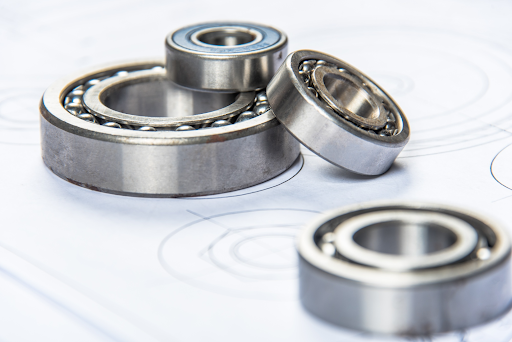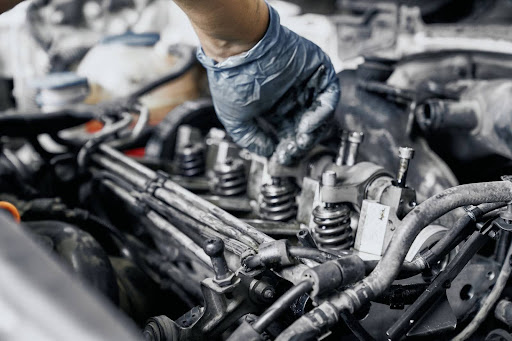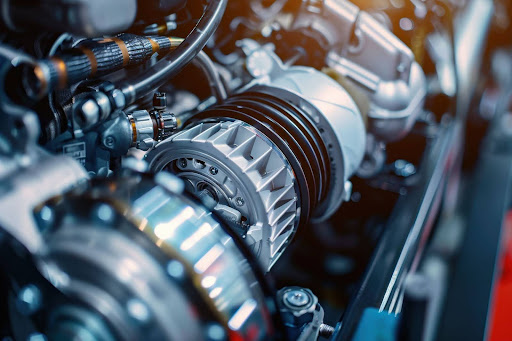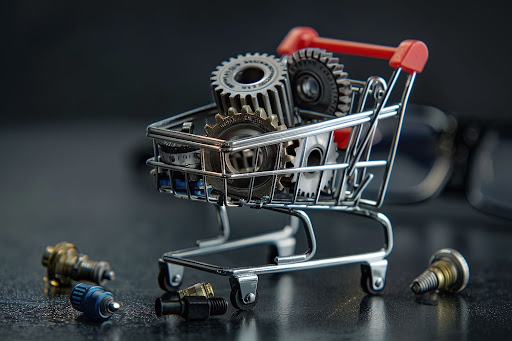In heavy commercial vehicles like trucks and buses, the smooth movement of rotating parts is heavily dependent on the health of their bearings. When a bearing fails, it can lead to expensive repairs, unplanned downtime, and safety concerns on the road. Identifying the cause early can save time and money. Whether you’re maintaining a fleet or operating a single truck, knowing how to catch the signs and trace the issue is crucial.
Understanding the early symptoms and knowing what to check can help reduce wear and extend the life of bearing parts for trucks.
-
Don’t Ignore Abnormal Noises or Vibration
Unusual sounds are the first indicators that something might be wrong. A humming, rumbling, or growling noise coming from the axle or wheel area often signals a bearing issue. In many cases, the sound becomes louder when the truck is turning or accelerating.
- Vibration on the steering or floor of the vehicle can also indicate a failing bearing.
- Pay attention to when the noise or vibration occurs—whether it increases with speed or under certain loads.
Often, what feels like a suspension problem might just be a worn-out or improperly installed bearing. Delaying inspection after such signs usually makes the damage worse.
-
Check for Improper Lubrication and Contamination
One of the most common causes of bearing failure is poor lubrication. Either the lubricant is of poor quality, there’s not enough of it, or it has been contaminated.
- Dust, dirt, or water entering the bearing housing can cause wear.
- Using the wrong type of grease or oil, or applying too much, leads to overheating.
- Contaminated lubricants often form a sticky layer, making it harder for the bearing to rotate smoothly.
Bearings should be cleaned and lubricated during regular maintenance cycles. Many failures occur simply because proper lubrication was skipped or not done correctly.
-
Inspect Installation and Alignment Errors
A bearing, no matter how good its quality, will not function properly if it’s installed incorrectly.
- Using too much force during installation may deform the raceways.
- Misalignment between shafts and housings creates uneven loads.
- Skipping the use of proper tools and techniques often damages the bearing surface.
Mechanics should follow standard practices when installing bearing parts for trucks. Proper alignment, torque, and tools are non-negotiable. Even a small misalignment leads to gradual failure over time, especially in commercial vehicles that carry heavy loads.
-
Look for Overloading and Improper Fit
Commercial trucks are often pushed to their load limits. Overloading or running the truck beyond its recommended capacity puts extra stress on the bearings.
- Check for visible signs like cracked bearing housings or deformed seals.
- Repeated overloading causes the rolling elements to wear unevenly.
- Loose or overly tight fits between the bearing and shaft can also result in slippage or friction.
A bearing that doesn’t fit snugly will rotate along with the shaft, leading to inner ring creep. This causes excessive heat generation, surface wear, and in many cases, sudden breakdowns on the road.
-
Monitor Temperature and Discoloration
Heat is another clear signal that something is going wrong inside the bearing housing. Discoloration of metal surfaces usually points to overheating.
- Bluish or black marks on the bearing or shaft mean the temperature exceeded safe limits.
- Overheating can result from poor lubrication, misalignment, or excessive friction.
- In trucks that operate in hot or dusty environments, cooling issues are a major contributor to bearing failure.
When examining failed parts, always look at the colour of the bearing. It tells a story. A golden or purple hue often indicates that the bearing ran too hot for too long.
An Eye for Prevention Makes All the Difference
Most bearing failures don’t happen overnight. They start small and worsen gradually. Maintenance teams and truck operators need to be proactive. By observing sound, heat, movement, and wear patterns, the cause of failure becomes easier to trace.
Routine inspections are the most effective defence against premature damage. Use the right lubricants, follow proper installation methods, and never ignore early warning signs.
Stay Ahead with Routine Checks
Choosing high-quality parts and replacing worn components on time can significantly improve truck performance. Reliable bearing parts for trucks ensure smoother operation, better fuel efficiency, and longer service life for commercial vehicles.
For transport companies and fleet owners, investing in durable and certified parts directly impacts daily operations. Smoother rotation and fewer breakdowns mean better mileage, on-time deliveries, and lower operating costs.
Tata Genuine Parts offers a wide range of spare parts specifically designed for Tata Motors commercial vehicles. From engine components to bearing parts for trucks, every product is manufactured to meet OEM standards, ensuring maximum reliability on Indian roads.





